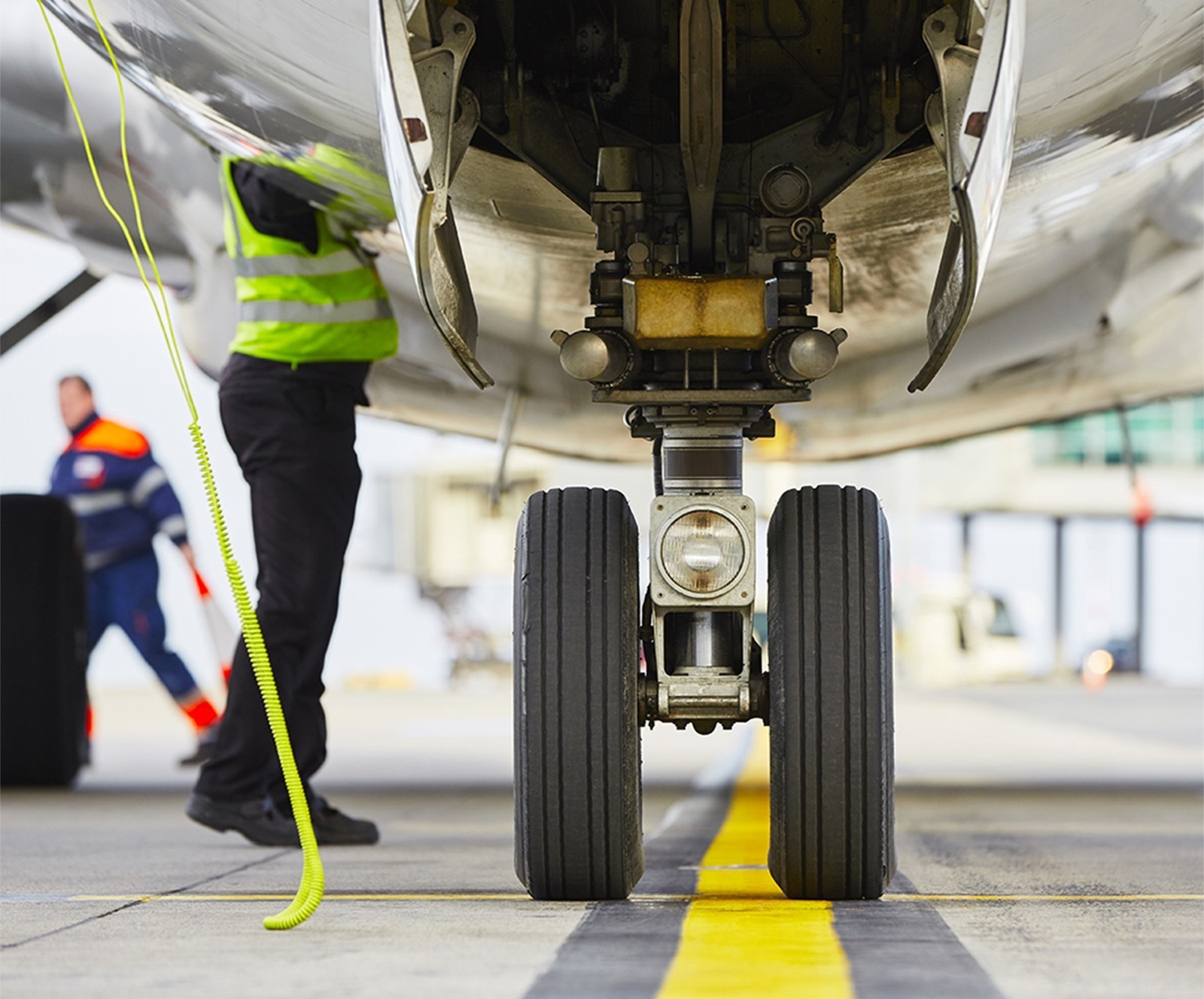- Home
- Gases
- Nitrogen gas
- Nitrogen Aviation Grade
Nitrogen Aviation Grade
An inert gas with low oxygen and moisture levels.
An inert gas with low oxygen and moisture levels.

N2
Nitrogen, unlike air, does not permeate easily through rubber or seals found in aircraft components. It is also inert and therefore ideal to inflate aircraft tyre to prevent oxidative degradation of the rubber, with the added advantage of its inert nature preventing fire due to brake heat transfer. Nitrogen is used in oil-filled shock absorbers to optimise damping efficiency and to prevent oil 'dieseling' during compression. Due to its non-explosive properties, nitrogen is used to inflate life rafts. Nitrogen is also used to inert aircraft fuel tanks to reduce the risk of combustion.
Moisture ≤ 4 ppm
Oxygen ≤ 10 ppm
Hydrocarbons (as methane) ≤ 50 ppm when supplied in cylinders OR ≤ 58.3 ppm when supplied as a bulk liquid
| Size | Product code | Volume / m³ | Weight (full) / kg | Pressure / kPa | Outlet connection | Availability | Cert. of conformance |
|---|---|---|---|---|---|---|---|
| G | 225171 | 13.1 | 79 | 30,000 | Type 51 | NZ Wide | Download |
| Size | Product code | Availability | Cert. of conformance |
|---|---|---|---|
| Bulk | 224901 | Australia wide | Download |
| Appearance | Odour | Flammability |
|---|---|---|
| AppearanceColourless gas | OdourOdourless | FlammabilityNon-flammable |
2.2
 Non-flammable non-toxic gas 2.2
Non-flammable non-toxic gas 2.2
Contact our professional team for questions about products, pricing, creating an account & more.